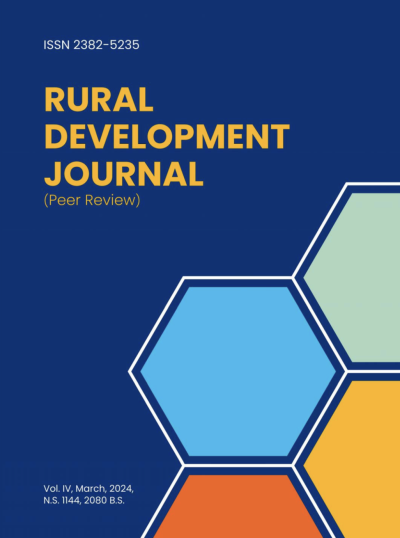Problems and Perspectives of Foreign Migration in Rural Nepal: A Case Study of Narja, Nuwakot
DOI:
https://doi.org/10.3126/rdj.v4i1.64031Keywords:
foreign, migration, Narja, remittance, employmentAbstract
International migration stands as a significant livelihood strategy for individuals in developing countries such as Nepal. The primary objective of this study is to comprehend the underlying factors that drive foreign migration in Narja, Nuwakot. Employing a mixed-method approach, this study combines surveys with qualitative insights gathered through direct questionnaires and interviews conducted with respondents. Data collection took place in September 2023. Our findings revealed that foreign migration has emerged as a noteworthy phenomenon in Nuwakot, propelled by a combination of push and pull factors, including economic opportunities, unemployment, poverty, and aspirations for a better life. These factors collectively influenced the decision of Narja residents for international migration. In our study, a higher percentage of labor migrants were observed in the Gulf states, followed by Malaysia, Australia, USA, and Japan. The majority of these labor migrants were male and predominantly within the age group of 20-40 years. A significant portion of applicants obtained their visas through Recruiting Agencies/Consultancies. Our results demonstrated that over 60.0% of migrants earned an income ranging from Rs. 50,000 to 1,00,000 per month and sent remittances to support their families' livelihoods. While these remittances play a crucial role in sustaining the local economy and enhancing living standards for families, in the long term, they may pose serious threats to the country's human resource and economy.




